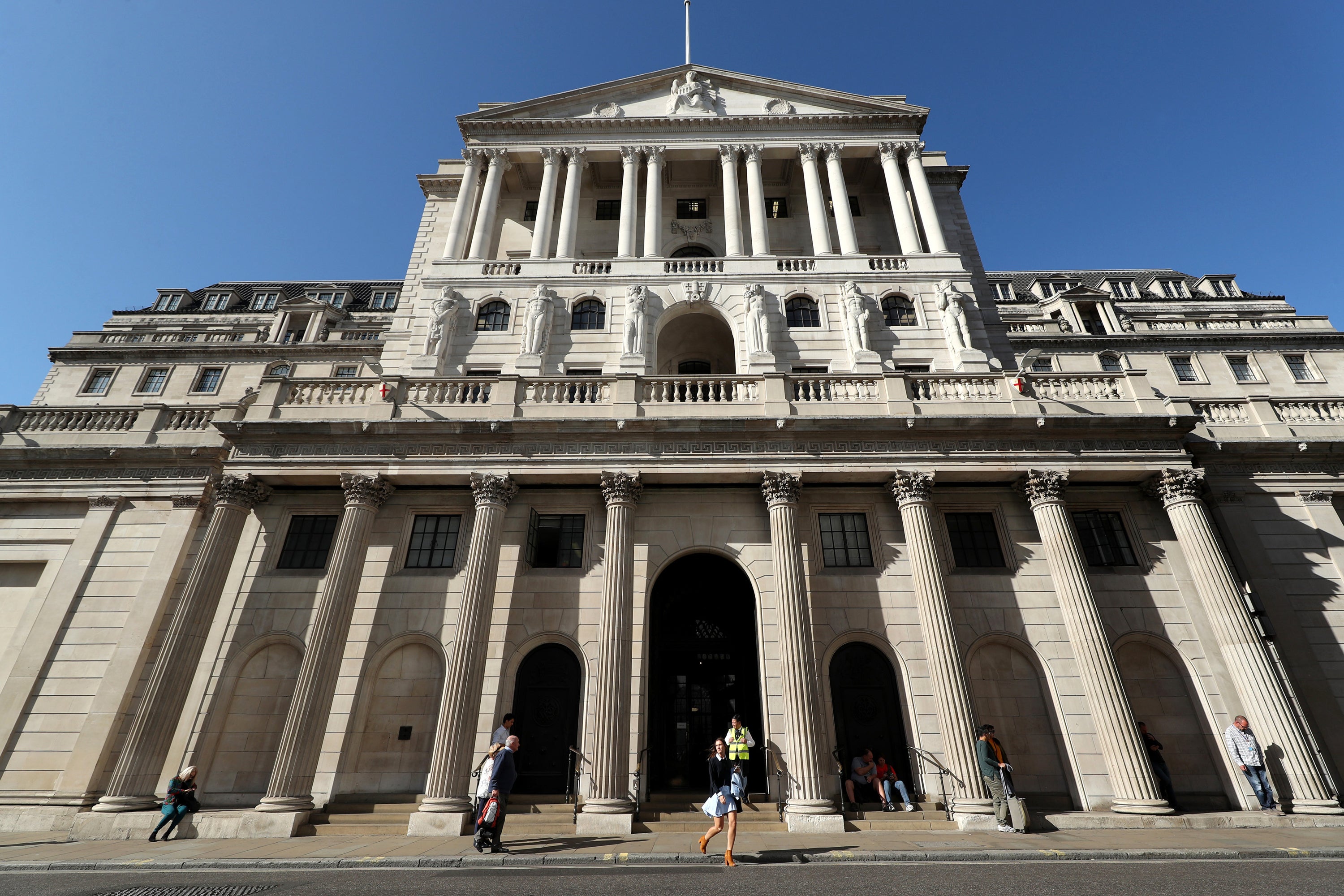Bank orders lenders to set aside billions for rainy day fund
The capital buffer was slashed to zero during the pandemic to help the economy, but banks have now been asked to start filling it again.

Your support helps us to tell the story
From reproductive rights to climate change to Big Tech, The Independent is on the ground when the story is developing. Whether it's investigating the financials of Elon Musk's pro-Trump PAC or producing our latest documentary, 'The A Word', which shines a light on the American women fighting for reproductive rights, we know how important it is to parse out the facts from the messaging.
At such a critical moment in US history, we need reporters on the ground. Your donation allows us to keep sending journalists to speak to both sides of the story.
The Independent is trusted by Americans across the entire political spectrum. And unlike many other quality news outlets, we choose not to lock Americans out of our reporting and analysis with paywalls. We believe quality journalism should be available to everyone, paid for by those who can afford it.
Your support makes all the difference.UK banks will need to set aside more cash to absorb shocks in the financial markets from next year, despite the Bank of England saying lenders are well placed to support households and businesses.
Officials have ordered them to set aside 2% of their capital – or around £22 billion – as part of the countercyclical capital buffer from this time next year.
The buffer – introduced in the wake of the financial crisis to ensure banks have a rainy day fund – was slashed to zero during the pandemic, releasing billions of pounds to help businesses and households.
The Bank of England announced last December that it would be increased to 1% as conditions normalised. It will now rise to 2% after the mandatory 12-month notice to banks.
Officials stressed that they are ready to release the cash again, especially if the economy performs worse than currently expected.
In a report from the Financial Policy Committee, the Bank said lenders are still resilient, despite rampant inflation and the impacts of Russia’s aggression in Ukraine.
“Although downside risks will present headwinds, the FPC judges that UK banks have capacity to weather the impact of severe economic outcomes,” it said.
But it would lead to less money flowing to borrowers, officials said in Tuesday’s report.
“In such scenarios, banks are likely to manage prudently their lending activity, commensurate with changes in credit quality and the real economy.”
Some households are also likely to struggle with repaying their debt. Around 80% of mortgages are currently on fixed interest rates – compared with just 30% nine years ago.
But some 40% of these are set for renewal this year or next, pushing interest rates up for these households.
“Tighter financial conditions and reduced real incomes will weigh on debt affordability for households, businesses and governments in many countries, increasing the risks from global debt vulnerabilities,” the Bank said.
Households have come under increasing pressure in recent months, as inflation hit 9.1% in May.
There are a series of reasons for the soaring cost of living, but chief among them is the price of energy.
In April energy bills soared for most households in Britain, as Ofgem increased its price cap by 54% to £1,971 for the average household.
Experts believe this could rise again in October, to around £3,000, which could help to push inflation over 11% later this year.
“Commodity price volatility following the Russian invasion of Ukraine has further exacerbated price pressures facing households and businesses, and has had implications for the financial system.”
The Bank said the proportion of households that will need to change their habits to be able to afford to pay their debts will not increase much this year.
It will take time for rate increases to be passed on to customers, and the hit will also be cushioned by Government support.
The figure is likely to increase in 2023, but the number of struggling households will still remain significantly below the peaks seen in the wake of the financial crisis, officials said.